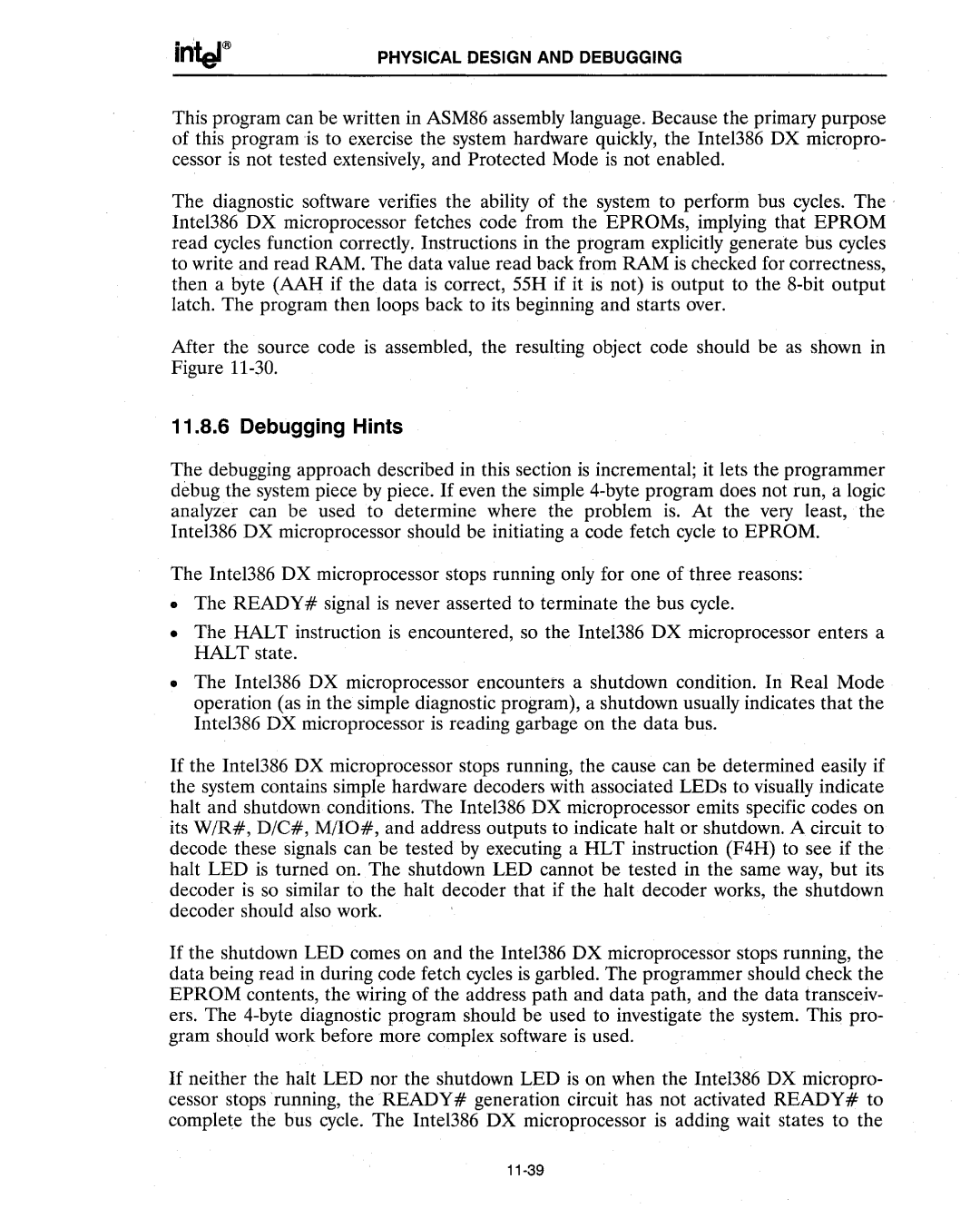
PHYSICAL DESIGN AND DEBUGGING
This program can be written in ASM86 assembly language. Because the primary purpose of this program is to exercise the system hardware quickly, the InteI386 DX micropro- cessor is not tested extensively, and Protected Mode is not enabled.
The diagnostic software verifies the ability of the system to perform bus cycles. The . InteI386 DX microprocessor fetches code from the EPROMs, implying that EPROM read cycles function correctly, Instructions in the program explicitly generate bus cycles to write and read RAM. The data value read back from RAM is checked for correctness, then a byte (AAH if the data is correct, 55H if it is not) is output to the
After the source code is assembled, the resulting object code should be as shown in Figure
11.8.6 Debugging Hints
The debugging approach described in this section is incremental; it lets the programmer debug the system piece by piece. If even the simple
The InteI386 DX microprocessor stops running only for one of three reasons:
•The READY# signal is never asserted to terminate the bus cycle.
•The HALT instruction is encountered, so the InteI386 DX microprocessor enters a HALT state.
•The InteI386 DX microprocessor encountets a shutdown condition. In Real Mode operation (as in the simple diagnostic program), a shutdown usually indicates that the Intel386 DX microprocessor is reading garbage on the data bus.
If the Intel386 DX microprocessor stops running, the cause can be determined easily if the system contains simple hardware decoders with associated LEDs to visually indicate halt and shutdown conditions. The InteI386 DX microprocessor emits specific codes on its WIR#, D/C#, M/IO#, and address outputs to indicate halt or shutdown. A circuit to decode these signals can be tested by executing a HLT instruction (F4H) to see if the halt LED is turned on. The shutdown LED cannot be tested in the same way, but its decoder is so similar to the halt decoder that if the halt decoder works, the shutdown decoder should also work.
If the shutdown LED comes on and the Intel386 DX microprocessor stops running, the data being read in during code fetch cycles is garbled. The programmer should check the EPROM contents, the wiring of the address path and data path, and the data transceiv- ers. The
If neither the halt LED nor the shutdown LED is on when the Intel386 DX micropro- cessor stops running, theREADY# generation circuit has not activated READY# to comple~e the bus cycle. The Intel386 DX microprocessor is adding wait states to the
